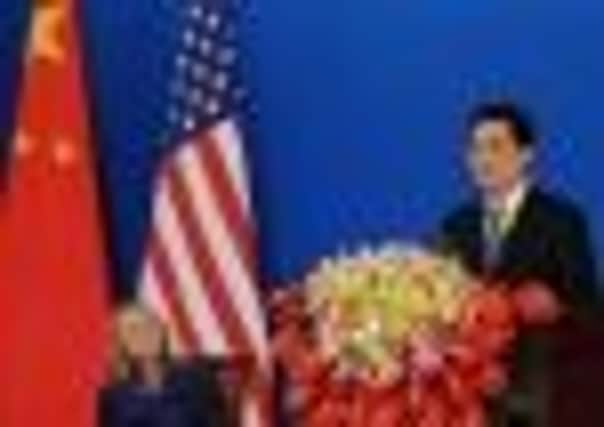Fate of rights activist Chen Guangcheng sparks diplomatic standoff


Just hours after Mr Chen, who is blind, left the US embassy in Beijing – where he had sheltered after he fled last week – for a hospital check-up and reunion with his family, he told friends and the media they felt threatened and wanted to go abroad.
There have been conflicting reports about why Mr Chen originally left the embassy. Yesterday US officials denied he had been forced to leave.
Advertisement
Hide AdAdvertisement
Hide AdGary Locke, US ambassador to China, said: “I can tell you unequivocally that he was never pressured to leave. He was excited and eager to leave”.
Mr Chen remained in the hospital yesterday, receiving medical tests. The grounds were ringed by a visible police presence, making it unclear how his exit could be arranged.
Mr Chen’s goal, he originally told US officials, was to secure the safety of his family and remain in China. Under arrangements negotiated over days, he was to be reunited with his family and relocated outside his home province to a university town where he could study law.
But yesterday, Mr Chen told reporters that he felt abandoned by US officials, finding no embassy staff had stayed behind to ensure he was safe.
His wife, Yuan Weijing, began describing the rough interrogation she received once his escape became known and the fight his nephew got involved in when confronted by officials. Mr Chen said he changed his mind, fearing for their safety if they remained in China.
US department spokeswoman Victoria Nuland said Mr Chen’s “family have had a change of heart about whether they want to stay in China”.
She added: “We need to consult with them further to get a better sense of what they want to do and consider their options.”
A self-taught lawyer, Mr Chen, 40, spent most of the last seven years in prison or under house arrest in what was seen as retribution by local authorities for campaigning against forced abortions and other official misdeeds. His wife, daughter and mother were confined at home with him, enduring beatings, searches and other mistreatment.
Advertisement
Hide AdAdvertisement
Hide AdHis escape from house arrest to the embassy drew America into his case, which has proven a vexed issue for the Beijing government.
It is unclear whether China would be willing to negotiate further over Mr Chen’s fate. The government already has expressed anger that the US harboured a Chinese activist.
Beijing believes it has a right to restrict the movements of Chinese citizens, and the foreign ministry reiterated its displeasure yesterday, describing American involvement as meddling in Chinese domestic matters.
Should Beijing agree to negotiate, among the issues that would have to be worked out if Mr Chen leaves China is whether he would go as a visiting scholar – an indication his stay would be temporary – and whether China would ever let him return.
The Communist government has at times revoked the passports of dissidents abroad, rendering them stateless and unable to return.